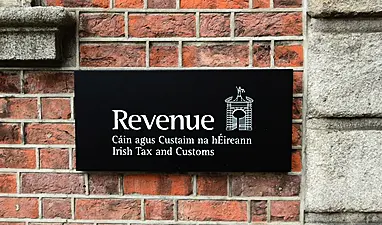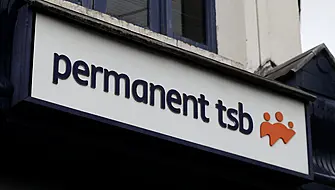Over 6,460 customers of the Revenue Commissioners have warehoused debt totalling almost €1.9 billion – an average individual debt of over €294,000 for that large cohort.
Warehousing of tax debt assists businesses who experienced cash-flow and trading difficulties during the Covid-19 pandemic.
Under the scheme, businesses could defer paying some eligible tax liabilities until they were in a position financially to deal with the debt.
That is according to new figures provided by Minister for Finance, Michael McGrath, who said that the total amount of tax warehoused is €2.2 billion.
The €1.9 billion owed through the warehousing scheme by the 6,462 works out to an average debt owed of €294,026 by those Revenue clients.
In a Dáil reply to Fine Gael TD Richard Bruton on the issue, Mr McGrath stated that at the end of March 2023, the value of debt warehoused was €2.216 billion for 63,600 businesses.
He said that of this total 31 per cent have warehoused debts of less than €100, 15 per cent have warehoused debts of between €101 and €1,000, and a further 19 per cent have warehoused debts between €1,001 and €5,000.
He said: “In total, 41,294 businesses in the warehouse – 65 per cent of the total – have an outstanding balance of less than €5,000.”
He said that the bulk of the debt figure is warehoused by just 6,462 customers, with outstanding balances greater than €50,000 totalling almost €1.9 billion of the overall figure of €2.2 billion.
Minister McGrath said it was worth reflecting on those numbers “and the fact that two thirds of the businesses that have tax debts warehoused owe less than €5,000”.
He said: “I recognise that this is a significant amount of money for a lot of businesses but in the great majority of cases, with goodwill and co-operation between the business and the Revenue Commissioners, it should be possible to put in place repayment arrangements over a period of time.
In response to Alan Dillon, Mr McGrath said Revenue “have assured me that they will be as flexible and supportive as possible. The requirement that people engage with Revenue is important, and it is important that we all emphasise the need to do that”.
Mr Dillon said that some of the letters he has seen that have been issued by county sheriffs locally leave a lot to be desired “and the language that is being used is challenging for those on the receiving end of them”.
The Mayo TD said: “It only adds to the impact of anxiety and concern when that happens.”
Mr McGrath said last October Revenue announced an extension to the period during which debts can remain parked in the warehouse.
He said this means that businesses no longer have the challenge of making arrangements to repay their warehoused debt until May 1st 2024.
He said: "This significant additional time should greatly support businesses in their recovery from the impacts of the pandemic and the energy crisis and prevent business failure.

"Importantly also, businesses are still able to avail of the reduced 3 per cent interest rate from January 1st, 2023, as opposed to the general interest rate of 10 per cent when they come to pay the debt.”
Mr McGrath stated that it is worth underlining the point that the requirement is to have entered into an arrangement with Revenue by May 2024.
He said: “It is not that the business has to have repaid the warehoused tax by that date; it just has to have entered into an arrangement. Over the next ten to 11 months, I urge businesses to engage with the Revenue Commissioners and put in place that arrangement.”
"The moral of the story is that I am asking businesses to engage with the Revenue Commissioners and to ensure there is an arrangement in place before May of next year”.







